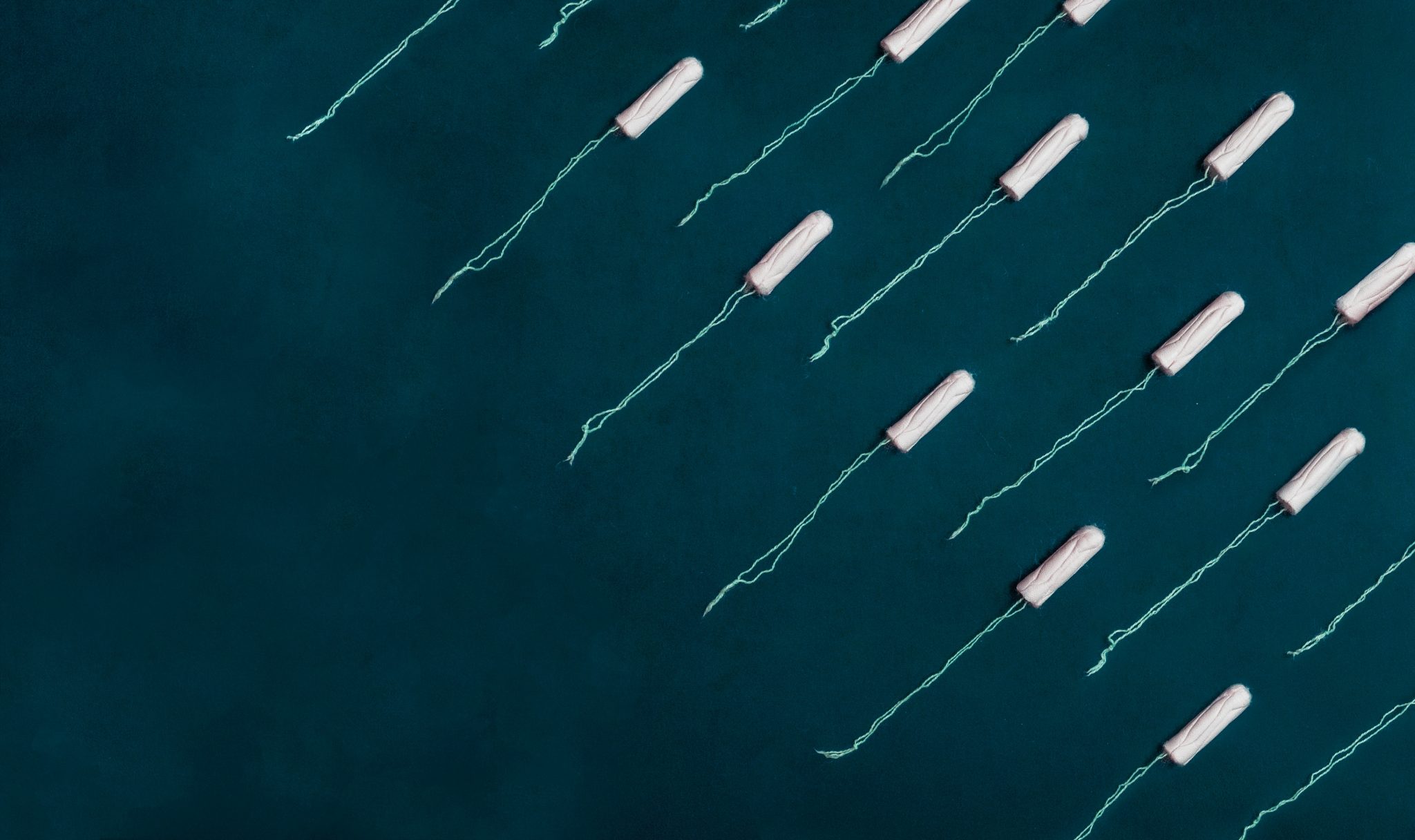What are irregular periods, and why do we get them? A gynaecologist answers our questions
Written by Dr Anita Mitra
Are you experiencing early or late periods during lockdown? Could this be down to stress? Here, gynaecologist Dr Anita Mitra explains everything we need to know about irregular periods.
The textbooks generally state that the menstrual cycle is 28 days in length. This means that if your period started on the first day of the calendar month, your next period would come on the 29th day of the month.
But only about 15% of women actually have a 28 day cycle. So, if you’re one of the 85% not following the textbook, does that mean your periods are irregular? Read on to find out.
What is an irregular period?
A ‘normal’ menstrual cycle should be between 21-35 days in length, with bleeding typically lasting for three to five days. An irregular cycle is defined as being one that varies by more than 10 days in range. So a range of 27-32 days would be regular, because it varies by only five days, whereas a range of 30-90 days would be irregular, because the variation is 60 days. Essentially, if you can’t predict when your next period is going to arrive, it’s irregular.
For your period to be regular you need your hormone levels to fluctuate in a rather intricate, yet elegant, cycle in order to ensure you ovulate (release an egg) on a regular basis and thus have a regular menstrual cycle.
The menstrual cycle has two phases. The first is the follicular phase, which starts with your period and finishes at the time you ovulate. It’s the most variable in duration, and is generally around 14 days in length, but if you have a super long cycle it could be several months in duration.
The second stage is the luteal phase, which occurs after ovulation. The duration of this is pretty fixed, usually 10-14 days, with the length being dictated by the lifespan of the corpus luteum, which is the shell left in the ovary after ovulation that pumps out progesterone. LH (Luteinizing Hormone), FSH (Follicle Stimulating Hormone) and oestrogen, alongside progesterone, are the most important hormones for the menstrual cycle, but they can be influenced by other hormones including insulin and thyroid hormones, as well as environmental factors that we’ll come on to.
What causes irregular periods? Are irregular periods caused by stress?
A real multitude of factors can cause irregular periods. Let me break them down for you.
1. Extremes of reproductive life – your periods will be the most irregular when you first start your periods and as you’re getting towards the menopause. This is because you will often ovulate at irregular intervals, meaning your hormones won’t cycle in quite the way they do in a regular cycle.
2. Polycystic ovarian syndrome (PCOS) – this is a hormonal disease that affects up to one in five women. It occurs due to insulin resistance in about 70% of women. Insulin is one of the hormones than regulates blood sugar, and if there’s lots of it, you convert oestrogen to testosterone. This halts ovulation, preventing regular periods.
3. Other hormonal disorders – including thyroid disease (which is more common in women than men), diabetes, and more unusual causes such as diseases or abnormal hormone production in areas of the brain, such as the anterior pituitary and hypothalamus where female hormones are made.
4. Hypothalamic amenorrhoea (HA) – this is a long and scary sounding name for something that I often see as a doctor. Basically, it means the hypothalamus area of the brain doesn’t get the correct signals to make all the hormones that you need for a regular menstrual cycle.
Why would that happen? Because our modern lifestyles consisting of hectic schedules, lack of sleep, restrictive eating patterns and over-exercising are all a source of chronic stress that send signals to our brain to say ‘stop this flogged-to-the-bone body from wasting energy by having a period’. These stressors deplete the body of the energy it requires to make the hormones in the first place.
From an evolutionary point of view, this is nature’s way of ensuring you don’t get pregnant in a situation where you may not have the energy to sustain a pregnancy and a child, in times of famine and siege. Yet in today’s times, that probably translates instead to a 6am home workout class, followed by a full-to-the-brim inbox, a barely-there salad for lunch, an afternoon of back-to-back Zoom call meetings followed by some kind of online social event in the evening. The result can be either very infrequent periods or, in some women that I’ve seen, years without a period at all.
On a less extreme end of the spectrum, this can also be the reason why your period might not come at quite the time you’re expecting it if you are travelling across time zones (before the lockdown started) or have short bursts of stress, such as a work deadline, or a wedding or house purchase to plan.
Do irregular periods mean you have a hormonal imbalance?
Usually yes, but not always a permanent one. For example, if your irregular cycle is due to constantly changing time zones, if you stopped travelling so often, your periods should become more regular, assuming you don’t also have an intrinsic hormonal disease that is driving them. Those who have stopped travelling during lockdown might have seen this happen.
What is the treatment for irregular periods?
You need to identify and treat the cause, which is sometimes easier said than done. If you go to your doctor they’ll check all of the necessary hormone levels to check for easily correctible problems such as thyroid disease. Please check with your GP to see what services might be available during this time.
With HA, the best way to try and regulate your cycle is to try and correct the factors causing chronic stress, such as improving sleep hygiene and decreasing exercise intensity. If you’re found to have PCOS, the same lifestyle changes can help, and the combined oral contraceptive pill may be prescribed as a way of ensuring a bleed at least every few months to stop your womb lining from getting too thick.
It’s important to point out that the pill will not ‘rebalance’ your hormones in any way. If you stop taking the pill and haven’t managed to make any changes to the triggers, you’re likely to have irregular periods again when you stop.
Do irregular periods affect fertility?
Yes, they can. Just because you had a period doesn’t mean you ovulated. And of course, you need ovulation in order to release an egg for the sperm to make a baby with. If you don’t ovulate, your endometrium (lining of the womb) will eventually have to fall away. This is a period, but it can often be heavier than normal if you have had a particularly long cycle, because your lining has had longer to build up.
Having a particularly short cycle can also affect fertility, because it may mean that you have a very short luteal phase, in which case there may not be long enough for adequate implantation to occur between the egg being fertilized and the lining starting to fall away. Having said that, a lot of people with irregular periods do not find their fertility is affected, so it’s still very important to use proper contraception if your cycle is irregular.
It’s likely that contraceptive apps will be less accurate with an irregular cycle. If you can’t predict your cycle, its unlikely that an algorithm will be able to!
This feature was originally published in March 2019
The Gynae Geek by Dr Anita Mitra is available to buy now
Images: Getty, Unsplash
Source: Read Full Article



